News archive
On this page you can search for older news. Choose a topic, type of news or enter your own keyword to filter out news.
View compact

Three questions to Mats Hallgren, assistant professor at the Department of Global Public Health, first author of several publications studying the effects of sedentary behaviour on mental health. Two related studies show that the context of these behaviours appears to be relevant.
News
Patients with acutely decompensated cirrhosis frequently develop acute-on-chronic liver failure (ACLF), a syndrome characterized by intense systemic inflammation, multi-organ failure and high short-term mortality. The Craig Wheelock group has now contributed to a study, recently published in the Journal of Hepatology, that associates specific profiles of circulating lipid mediators with the severity and prognosis of patients with acutely decompensated cirrhosis.
News

Single-cell RNA sequencing (scRNA-seq) has revolutionized the ability to characterize cell types and their gene expression programs in organisms and tissues. Although great improvements in cellular throughput have been made, methods generally suffer from low sensitivity and quantification that is limited to short RNA pieces. Now, researchers at Karolinska Institutet have released Smart-seq3 that greatly improves the quality in scRNA-seq. The study is published in Nature Biotechnology.
News

According to many observations, certain virus infections may play a part in the autoimmune attack that leads to type 1 diabetes. Researchers at Karolinska Institutet in Sweden and their Finnish colleagues have now produced a vaccine for these viruses in the hope that it could provide protection against the disease. The study is published today in the scientific journal Science Advances.
News
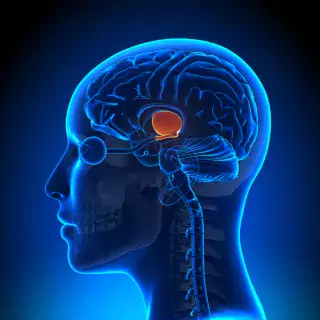
Many nerve cells in the brain region hypothalamus have unexpected origins and go through complex development programs, where millions of neurons assemble into a precisely knit network by birth. That is according to a study by researchers at Karolinska Institutet in Sweden and the Medical University of Vienna published in the journal Nature. The findings may further our understanding of hormonal diseases and their origins, according to the researchers.
News
João Ramos from the group Clinical Physiology at the Department of Molecular Medicine and Surgery will defend his thesis "Pulmonary hypertension and heart failure : physiological markers assessed by cardiovascular magnetic resonance" on May 8th, 2020. Main Supervisor is Martin Ugander.
News

Sweden can contribute solid data to Solidarity, a global study run by the WHO to test the efficacy and safety of drugs considered for use in the treatment of COVID-19, says Soo Aleman, docent and consultant, and coordinator of the Swedish arm of the study.
News
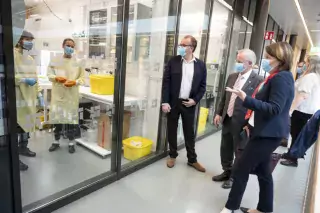
The British Ambassador to Sweden, Judith Gough, visited KI on Walpurgis Eve to discuss the COVID-19 research being led by Lars Engstrand at KI and SciLifeLab in collaboration with KTH and with primary funding from Knut and Alice Wallenberg Foundation.
News
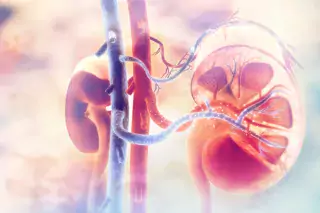
Use of sodium glucose cotransporter 2 (SGLT2) inhibitors to treat type 2 diabetes may help to lower the risk of serious kidney problems, according to a Scandinavian study led by researchers at Karolinska Institutet. The findings, now published in the journal The BMJ, provide support for the use of SGLT2 inhibitors in a broad range of patients with type 2 diabetes, according to the researchers.
News

A drug that lowers levels of the male hormone testosterone in the body reduces the risk of men with pedophilic disorder sexually abusing children, a study from Karolinska Institutet published in the journal JAMA Psychiatry shows.
News
Asle Hesla from the group Orthopaedics will defend his thesis "Ewing Sarcoma - treatment, prognosis and late effects" on May 8th, 2020. Main Supervisor is Henrik Bauer.
News

Comprehensively adapting cancer care and clinical cancer research to the COVID-19 pandemic is a necessity, researchers and doctors at Karolinska Institutet and Karolinska University Hospital write in a paper published in the journal Nature Medicine. In it, seven top European cancer centres propose adaptations to protect patients.
News

An international network of researchers in 10 countries are to study the effectiveness of homeschooling during the ongoing COVID-19 pandemic. The gathering of data via online surveys in the various languages is being led by researchers at Karolinska Institutet. The aims of the study are to look at the challenges facing families during the COVID-19 pandemic and to produce recommendations and technical methods for both homeschooling and teaching in general.
News
Nina Brodin, docent and senior lecturer, has been named new deputy head of the Division of Physiotherapy, starting April 15 2020.
News
Sten Orrenius, Professor Emeritus at Karolinska Institutet, died on April 27, 2020. Dr. Orrenius was an internationally renowned and highly respected toxicologist because of his groundbreaking research in drug metabolism, the role of disruption of calcium homeostasis in cellular toxicity and mechanisms of programmed cell death (apoptosis).
News

A new co-working facility will be opening in May at Nanna Svartz väg 4 in Solna. Here, at A Working Lab Innomedicum, researchers, students and companies will be able to meet in a campus environment to find ways to collaborate on life science innovations.
News
Researchers at Karolinska Institutet, Sweden have developed an online Cognitive Behavioural Therapy (CBT) program for people who struggle with excessive worry.
News
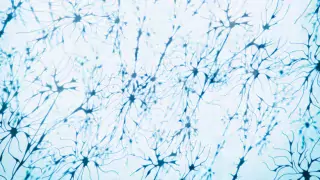
Researchers at Karolinska Institutet and the University of North Carolina have mapped out the cell types behind various brain disorders. The findings are published in Nature Genetics and offer a roadmap for the development of new therapies to target neurological and psychiatric disorders. One interesting finding was that cells from the gut's nervous system are involved in Parkinson's disease, indicating that the disease may start there.
News
The objective of Peter's thesis is to develop and improve technologies for prostate cancer diagnostics and to acquire knowledge related to these technologies that directly translate to clinical utility.
News
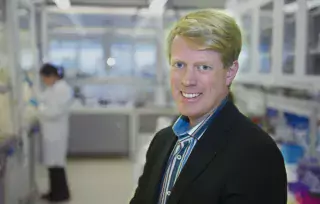
Thomas Helleday’s research group has been awarded a prestigious grant from the European Research Council (ERC) for the sixth time. The latest ERC Proof of Concept Grant is aimed at the development of new anti-inflammatory drugs for lung diseases such as fibrosis.
News
Gustav Mårtensson, PhD-student at the Division of Clinical Geriatrics. On May 15, 2020 you will defend your thesis "Quantifying neurodegeneration from medical images with machine learning and graph theory", what's the main focus of the thesis?
News

Only about five per cent of the babies born to mothers with hepatitis C are themselves infected by the disease. A possible reason for this low figure is that the baby’s immune system has already destroyed the virus before birth. A new study from researchers at KI and published in tje journal Gut reveals clear adaptations of the uninfected babies’ immune system that can lead the way to new treatment methods.
News
Märta Dahlström, PhD-student at the Division of Clinical Geriatrics. On April 30, 2020 you will defend your thesis: "Drug discovery targeting non-amyloid pathways in Alzheimer’s disease", what's the main focus of the thesis?
News

Physical exercise can act prophylactically for people with the metabolic syndrome and protect them against cardiovascular diseases, a new study from the Swedish School of Sport and Health Sciences, GIH, and Karolinska Institutet published in the European Journal of Preventive Cardiology reports. Even light physical exercise has been shown to have good prophylactic effects, for both women and men.
News
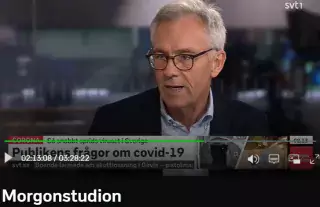
During the new coronavirus outbreak many researchers at Karolinska Institutet are contributing their competence and views to the public flow of information. Sharing knowledge is important. But researchers, particularly, must also base their reasoning on facts and express themselves clearly, including about matters of uncertainty, says Jan Albert, professor of infectious disease control at Karolinska Institutet and convenor of KI’s COVID-19 expert team.
News
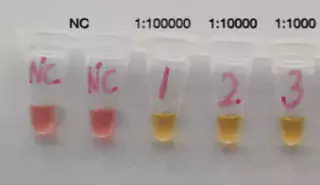
Researchers at Karolinska Institutet have together with researchers in China developed a new diagnostic test for COVID-19. The test can be performed without advanced laboratory equipment and deliver the result in about half an hour, according to a study published in the journal Clinical Chemistry. The researchers are now working on verifying the test results on confirmed COVID-19 patients at the Karolinska University Hospital.
News

Patricia Eustachio Colombo, doctoral student with the Department of Global Public Health at KI, is first author of the cross-sectional study based on data from the Swedish national dietary survey “Riksmaten ungdom” published in Public Health Nutrition.
News
Christina Dintica, PhD-student at the Division of Aging Research Center. On May 8, 2020 you will defend your thesis: "Oral health & olfactory function : what can they tell us about cognitive ageing?", what's the main focus of the thesis?
News
The enzyme dihydroorotate dehydrogenase (DHODH), an essential component for the de novo pyrimidine ribonucleotide biosynthesis, has reemerged in the last few years as a target for the development of small molecules with anticancer and antiviral activity.
News
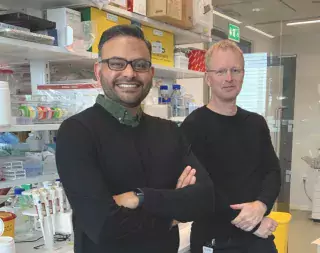
Researchers from Karolinska Institutet in collaboration with a lab in San Antonio USA, have uncovered how a specific population of lymphocytes promotes autoimmune disease by giving up their regulatory role in the immune system. The newly discovered mechanism is published in PNAS from research led by Dr. Saikiran Sedimbi and Prof. Mikael Karlsson.
News
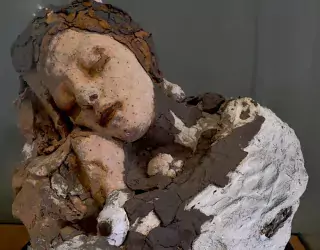
The outbreak of the new corona virus is the cause of much anxiety, an anxiety that can lead to insomnia. Yet sleep is essential to our mental and physical health. Two psychologists at Karolinska Institutet have now collected some evidence-based tips for getting a good night’s sleep in the pandemic era.
News
In order to simplify planning for both teachers and students, the Committee for Higher Education has decided that teaching at the basic and advanced levels will take place via distance for the remainder of the spring term.
News
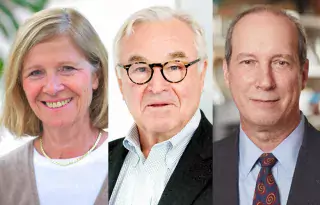
Three new honorary doctors have been appointed by the Board of Research at Karolinska Institutet. Pascale Cossart, Sven Hagströmer, and Thomas Sakmar will have their doctorates formally conferred at Stockholm City Hall on 13 November 2020.
News
Researchers at the Institute of Environmental Medicine (IMM) have studied whether radiofrequency fields from mobile phone use affect sleep.
News
Hi there Luke Woodham. You recently defended your thesis "Exploring the impact of virtual patient design: medical students' small group learning around medical error". Can you tell us what it is about?
News

We’re to keep a physical distance to reduce the risk of infection, but it’s now on an emotional level that we need to get closer” says Danuta Wasserman, director of the National Centre for Suicide Research and Prevention of Mental Ill-Health (NASP) at Karolinska Institutet.
News
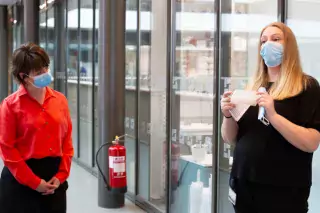
On 8 April, Matilda Ernkrans, Minister for Higher Education and Research, visited KI and SciLifeLab, which are coordinating a major COVID-19 diagnosis and research initiative. Under the direction of KI’s president, the Minister observed, amongst other things, how a laboratory at KI is built up to increase its analysis capacity for the testing of hospital staff and patients.
News
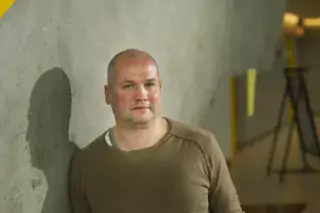
Karolinska Institutet’s president Ole Petter Ottersen has set up a resource team for research ethics in relation to the COVID-19 pandemic. The team comprises four experts from KI, one of whom is Niklas Juth, senior lecturer and docent of medical ethics and group convenor.
News

Children of parents suffering from mental illness have a higher risk of injuries than other children, according to a study by researchers at Karolinska Institutet in Sweden, published in the journal BMJ. The risk is elevated up to 17 years of age and peaks during the first year of life. The findings highlight the need for parents with mental illness to receive extra support around child injury prevention measures as well as early treatment of mental morbidity among expecting parents.
News

People with celiac disease have increased risk of dying prematurely, despite increased awareness of the disease in recent years and better access to gluten-free food. This is according to a new study from Karolinska Institutet in Sweden and Columbia University in the U.S. published in the prestigious journal JAMA. Celiac disease was linked to increased risk of death from cardiovascular disease, cancer and respiratory disease.
News
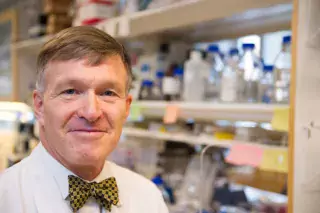
Karolinska Institutet and Karolinska University Hospital are the first institutions in Sweden to be accredited as a Comprehensive Cancer Centre by the Organisation of European Cancer Institutes (OECI).
News
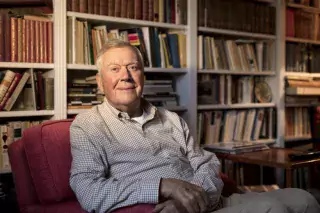
We have lost our former director, colleague and friend, Professor emeritus Folke Sjöqvist, who passed away peacefully on 30 March at the age of 86 after a protracted illness. He is sorely missed by his wife Margareta and four children and their families, as well as friends and colleagues in Sweden and around the world.
News
The Association for Research in Otolaryngology (ARO) announce Christopher Cederroth as the recipient for The Geraldine Dietz Fox Young Investigator Award at the 2020 ARO Annual MidWinter Meeting. Christopher Cederroth got the prestigious award for his hearing and tinnitus research.
News

A new method of evaluating and prioritizing treatment for patients with suspected acute stroke, which has been used by the Stockholm health authority since 2017, has led to faster health interventions and better patient care, shows a new study from Karolinska Institutet published in the journal JAMA Neurology.
News
Two weeks ago Karolinska Institutet launched two COVID-19 courses in Swedish for care providers, medical personnel and providers of social services and care of elderly as well as personnel working in connection to these services, following a request from the National Board of Health and Welfare. So far over 65 000 people have completed the courses. Now both courses are available in English. The first course is also available in Arabic, Persian and Russian.
News
The National Board of Health and Welfare annually distributes grants for research aimed at mental illness prevention and treatment of habits of living. This year, the research project “Tobaksavvänjning på recept” (Tobacco Cessation on Prescription) receives 2,3 MSEK.
News
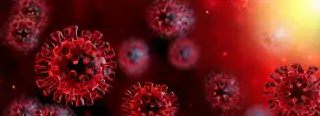
A drug already tested against lung disease could potentially inhibit COVID-19 by reducing the coronavirus load that enters the lungs and other organs. That is according to a study in human cell cultures and organoids by researchers at Karolinska Institutet in Sweden and the University of British Columbia (UBC) in Canada, published in the journal Cell.
News
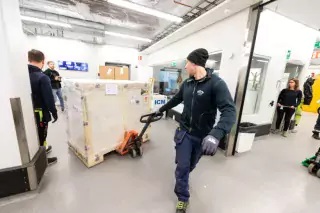
Karolinska Institutet has now received the test material that will allow scientists to perform 5,000 analyses a day on patient samples. The lab will be ready next week thanks to the swift cooperation of KI researchers and Knut and Alice Wallenberg Foundation.
News
Qing Shen’s thesis aims to increase our understanding of cancer diagnostic workup, by investigating different stress-related health outcomes during the critical time period of cancer evaluation, diagnosis and treatment, and also provide evidence for a potential effective treatment approach to attenuate excessive risks of stress-related health outcomes.
News
Through a unique database, KI researchers have been able to study the risk of mortality among people with liver disease caused by too much alcohol. Principal investigator Hannes Hagström, associate professor at the Department of Medicine Huddinge and Solna and co-author Jonas F Ludvigsson, professor at Medical Epidemiology and Biostatistics describe the study.
News
